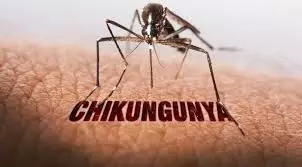Chikungunya: Increase in Cases Leads Doctors to Report Unusual Symptoms and Concerns
With the third major surge of chikungunya cases in the past decade, there has been a significant rise in unusual symptoms.
Chikungunya

In recent weeks, chikungunya cases have surged significantly, prompting healthcare professionals to raise concerns about unusual symptoms linked to the illness. This marks the third major outbreak of chikungunya in the last decade, accompanied by a range of atypical presentations that require further investigation.
Unusual Symptoms on the Rise
Doctors are noting an increase in symptoms that diverge from the typical chikungunya presentation, including:
- Skin Pigmentation: Many patients are reporting changes in skin pigmentation, especially around the nose.
- Dengue-like Rashes: An increasing number of cases are presenting with rashes resembling those seen in dengue fever, complicating diagnosis.
- Altered Taste: Loss or alteration of taste has become a concerning symptom, affecting patients’ ability to enjoy food and potentially impacting their nutrition.
- Drop in Platelets: Some individuals are showing a decrease in platelet counts, raising concerns about the severity of their illness.
Potential New Strain
As the case numbers rise, speculation is growing about the potential emergence of a new strain of the chikungunya virus. Health experts are calling for increased surveillance and research to better understand this outbreak and its implications.
Public Health Recommendations
In response to the recent surge, health authorities are stressing the importance of preventive measures, including:
- Vector Control: Implementing strategies to reduce mosquito populations, the primary vectors for chikungunya.
- Public Awareness: Educating the public about symptoms and encouraging prompt medical consultation for suspected cases.
- Vaccination Research: Advocating for ongoing research into chikungunya vaccines to bolster community protection against future outbreaks.

